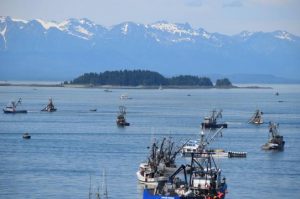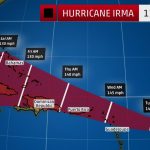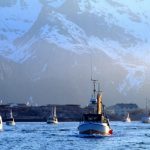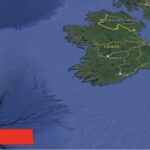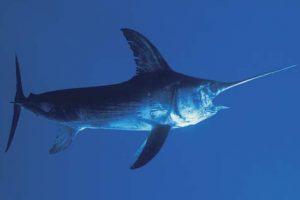Tag Archives: Terry Stockwell
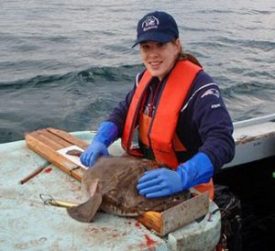
New England Fishery Management Council explores monitoring alternatives
The New England Fishery Management Council continues to work on an amendment to improve monitoring within the groundfish fishery, with a particular emphasis on generating more options within the dockside monitoring alternatives. Meeting for three days this week in Mystic, Connecticut, the council approved several additions and modifications to the original range of groundfish monitoring alternatives, with an eye toward completing a draft environmental impact statement in time to schedule public hearings later this year. The council also requested its Groundfish Committee “expand the number of options,,, >click to read<08:26
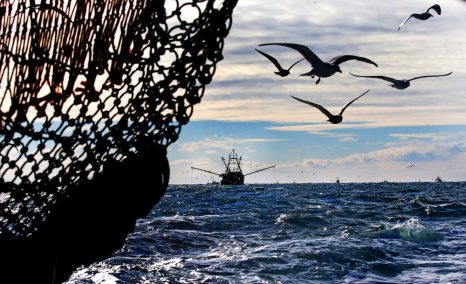
Federal regulators put an end to turbulent season in northern Gulf of Maine scallop fishery
Federal authorities are closing the scallop fishery in the northern Gulf of Maine at 12:01 a.m. Thursday after a contentious three-week season that pitted the interests of part-time, small-boat fishermen from Maine against large, full-time scallop operators. Fisheries regulators announced the closure Wednesday after small-boat fishermen – many of them Maine lobstermen operating 40- to 45-foot boats – met their annual quota of 70,000 pounds. The developments do not apply to the scallop fishery in state waters, which extend to 3 miles from shore. This year’s federal harvest has been contentious because the large, full-time boats are believed to have caught more than 1 million pounds of scallops in the northern Gulf of Maine scallop fishing area, but owing to a quirk in federal rules the fishery could not be closed until the small vessels caught 70,000 pounds. This month’s storms and unseasonable weather had kept the small boats in port, delaying their ability to meet their annual quota and close the area to the larger vessels, who were permitted to continue harvesting large quantities of scallops under federal rules. continue reading the story here 07:57
Out-of-state scallop boats threaten survival of Maine fishermen
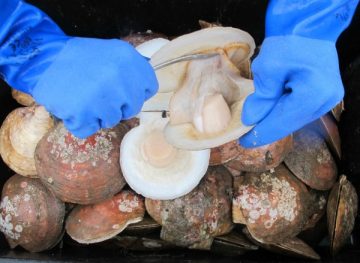 After years of waiting for the northern Gulf of Maine scallop population to flourish, small-boat fishermen from Maine say federal mismanagement of scallop stocks in the area could result in larger boats wiping them out. Hancock fisherman James West said that larger boats, most of which are based out of state, should not be allowed unlimited catches when he is capped at harvesting only 200 pounds of meat a day. And he said he’s angry that the New England Fishery Management Council has known about the regulatory disparity for years and has done nothing to address it. “That’s what makes me so mad about it,” West said Sunday. “I’m shocked the council couldn’t figure out a way to fix this. We’re really getting the shaft.” Council officials say protecting the lucrative resource is a high priority that they plan to address in the coming year. But Maine fishermen say a year could be too late to ensure that federal scallop grounds in the gulf stay productive. continue reading the story here 07:36
After years of waiting for the northern Gulf of Maine scallop population to flourish, small-boat fishermen from Maine say federal mismanagement of scallop stocks in the area could result in larger boats wiping them out. Hancock fisherman James West said that larger boats, most of which are based out of state, should not be allowed unlimited catches when he is capped at harvesting only 200 pounds of meat a day. And he said he’s angry that the New England Fishery Management Council has known about the regulatory disparity for years and has done nothing to address it. “That’s what makes me so mad about it,” West said Sunday. “I’m shocked the council couldn’t figure out a way to fix this. We’re really getting the shaft.” Council officials say protecting the lucrative resource is a high priority that they plan to address in the coming year. But Maine fishermen say a year could be too late to ensure that federal scallop grounds in the gulf stay productive. continue reading the story here 07:36
Effort to protect deep-sea coral has lobster industry on alert
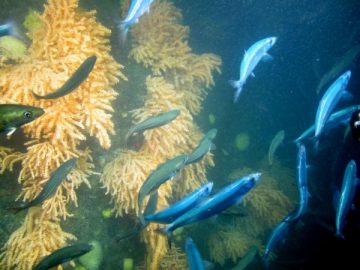 Over 400 Maine lobstermen could lose their traditional fishing territory under a proposal to protect deep-sea corals in the Gulf of Maine. The New England Fishery Management Council is considering a plan that would ban fishing in four designated coral zones spanning about 161 miles of federal waters in the Gulf of Maine – Mount Desert Rock, Outer Schoodic Ridge, Jordan Basin and Lindenkohl Knoll. Here, often on steep rock walls deep under water where sunlight cannot penetrate, scientists have found dense, delicate and slow-growing coral gardens of sea whips, fans and pens. During the cold-weather months, when 52-year-old Jim Dow usually fishes for hard-shell lobsters in deep federal waters, his buoys will encircle Mount Desert Rock, where the lobster is so plentiful that boats will sail for hours to drop traps there. As a result, fishermen call it the Meeting Grounds. He said word is just starting to spread about the coral protection plan, but he said the fishermen he has talked with say they didn’t even know there was coral in the deep canyons below. Read the rest here 10:16
Over 400 Maine lobstermen could lose their traditional fishing territory under a proposal to protect deep-sea corals in the Gulf of Maine. The New England Fishery Management Council is considering a plan that would ban fishing in four designated coral zones spanning about 161 miles of federal waters in the Gulf of Maine – Mount Desert Rock, Outer Schoodic Ridge, Jordan Basin and Lindenkohl Knoll. Here, often on steep rock walls deep under water where sunlight cannot penetrate, scientists have found dense, delicate and slow-growing coral gardens of sea whips, fans and pens. During the cold-weather months, when 52-year-old Jim Dow usually fishes for hard-shell lobsters in deep federal waters, his buoys will encircle Mount Desert Rock, where the lobster is so plentiful that boats will sail for hours to drop traps there. As a result, fishermen call it the Meeting Grounds. He said word is just starting to spread about the coral protection plan, but he said the fishermen he has talked with say they didn’t even know there was coral in the deep canyons below. Read the rest here 10:16


































